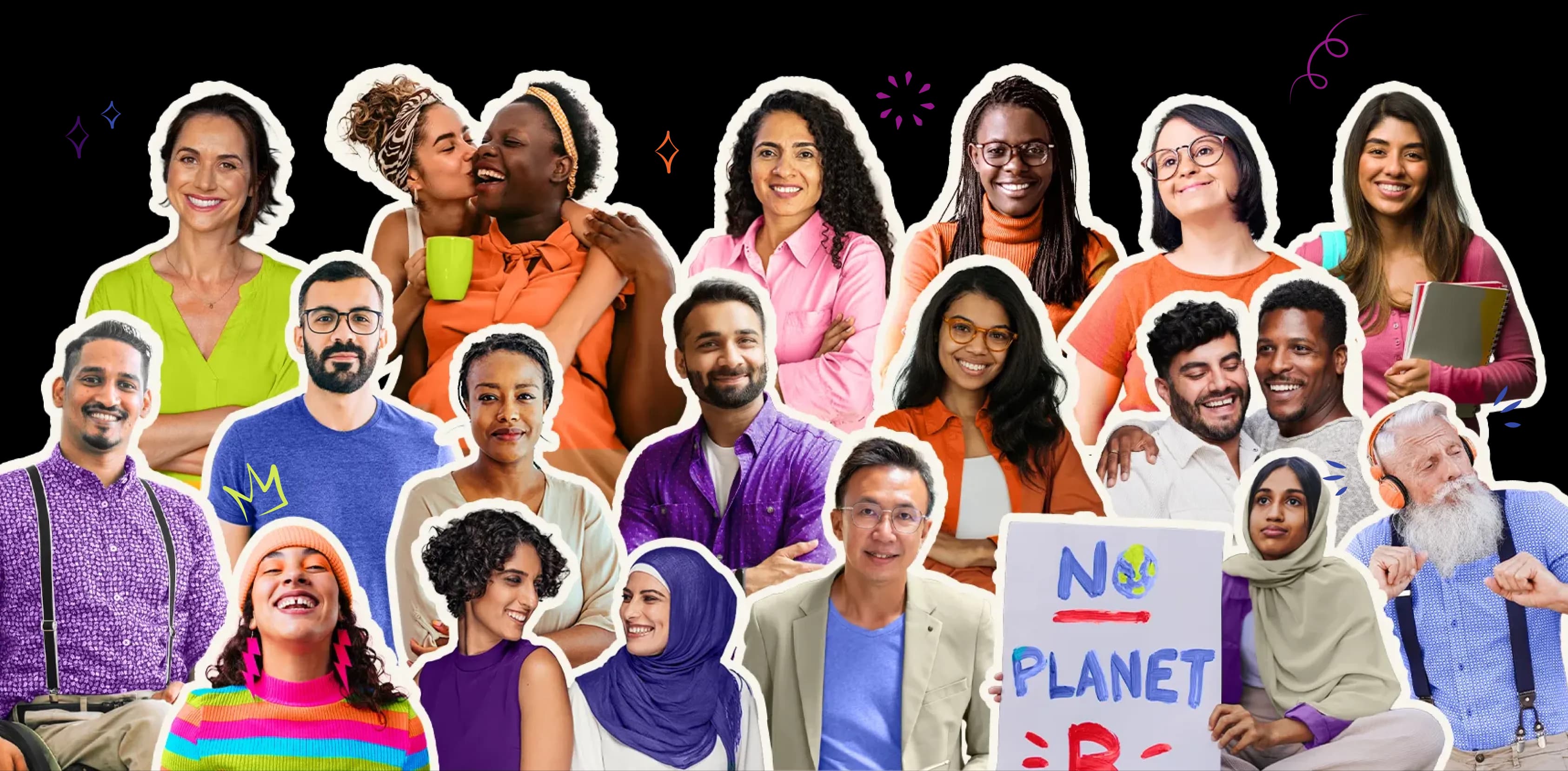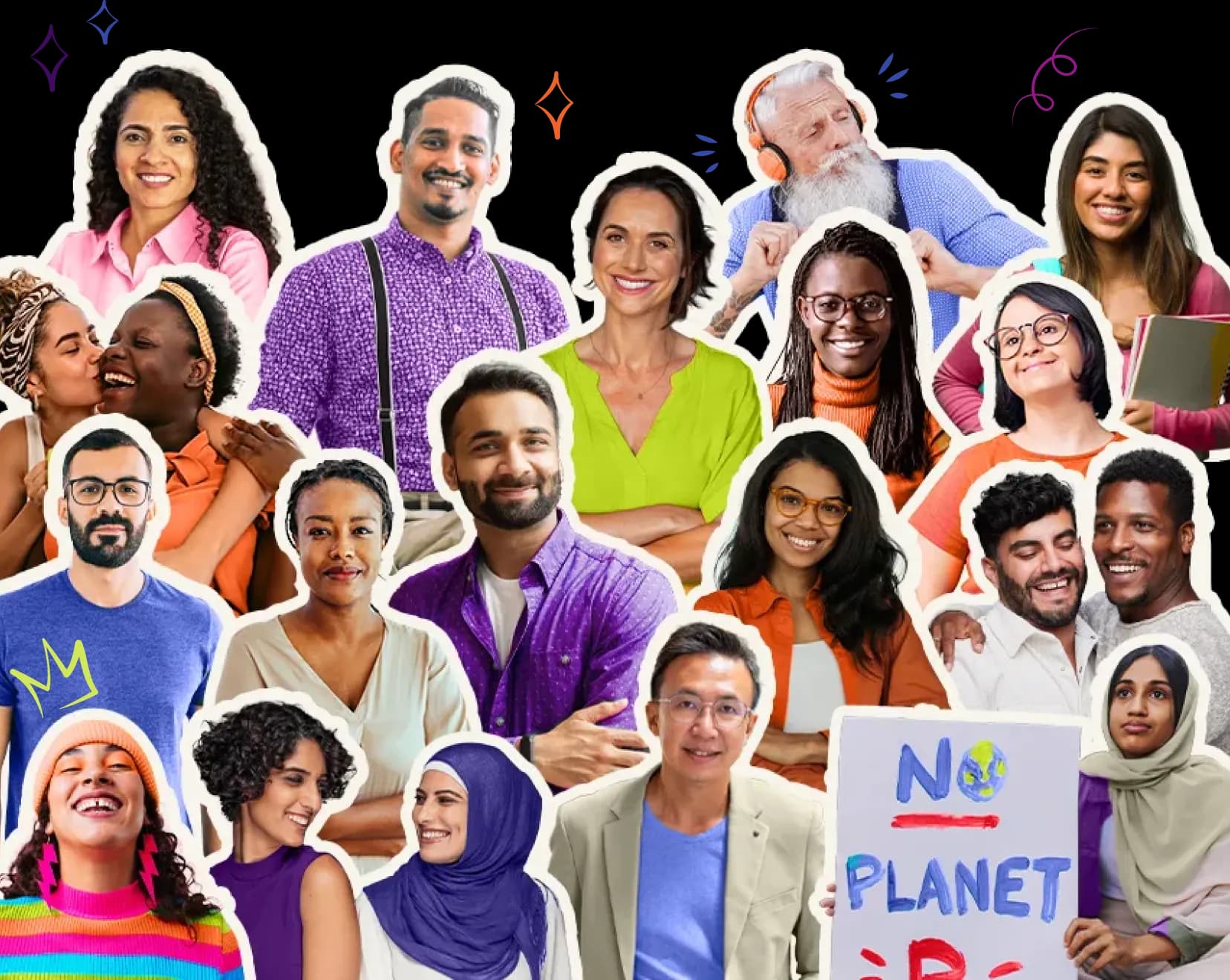Blog
This Pride, I Celebrate Our Shared Humanity
For the last ten years, I’ve worked at the intersection of faith and LGBTQ identities. The intersection of these identities is not only important to me professionally but also personally.

This June, I was honored to be invited to serve as a keynote speaker at the National and Civil Rights Museum’s LGBTQ+ Institute’s 2024 Symposium, “Investing in Our Future.” It was a full-circle moment for me, and I was honored to have the opportunity to share my story with dozens of young members of the LGBTQ+ community. I encouraged them to find ways to be bridge-builders and offered my perspective on navigating the murky waters that relationships with religious people can often be.
I can speak to this because for the last ten years, I’ve worked at the intersection of faith and LGBTQ identities. The intersection of these identities is important to me professionally and personally. Until I was 39, I lived my life as a straight-identifying person in religious and professional spaces that were non-affirming of queer people. In my personal life, my siblings and many of my closest friends were queer.
When I finally came out to myself and then others, I was required to leave these spaces because they were not affirming. But having spent almost four decades in them, I have a great deal of understanding and empathy for the people in them and the beliefs they hold. Likewise, as a queer person who has had to face the hurt that these views can cause when held by family and close friends, I also understand the desire to flee from religion altogether. It’s an impulse I share. And yet, 82 percent of Americans identify as religious, spiritual, or both – including almost half of queer people — and religious communities continue to provide incredible sources of belonging and purpose.
My political identity has also taken a non-linear trajectory. When I turned 18, my mom turned to me and said, “I’ll tell you what my father told me when I turned 18: vote Republican straight down the ticket.” And yet, here I find myself working at a progressive public policy firm.
I am here as proof that people can change their minds. Yet our current social and political inclinations are to retreat from relationships that can expose people to new information that can change their minds or help form common ground.
It is far more comfortable to surround ourselves with those who agree with us, and the echo chamber of social media only reinforces what we already believe. Choosing to stay in a relationship with those whose beliefs feel like a personal affront to our rights, our identities, and our relationships is incredibly difficult. It can be painful and even harmful.
However, many of us may choose to continue investing in relationships with those who treat us with respect and kindness, though their beliefs may be different from ours and may even feel antagonistic. Starting with doing the inner work to heal and know respectfully and kindly even though beloved at our very core and worthy of love, respect, and celebration, we can choose to keep showing up in relationships with big differences in belief. We can create an environment where curiosity, change, and bridge-building becomes possible.
Even as I write this, I think of one friend I’ve pulled away from because she didn’t attend my wedding because she felt the need to tell me that she disagreed with my marrying another woman, but then sent us a gift card to a hot new D.C. restaurant around the time of our wedding. Or the friend I recently had breakfast with who persevered in connecting with me despite my having avoided him since I came out. Though he holds a non-affirming set of beliefs, he first said to me that he loved me, and then he asked about my recent wedding and how my wife was doing. My inclination can be to pull away, to avoid, to disengage. Yet I think of the queer people in my life who persevered in relationship with me even though I attended and donated money to a non-affirming church, and said things that I’m sure were unintentionally ignorant or even harmful that I would undoubtedly say differently today. Not only did they create the space for me to change my mind, it helped me come out to myself and others.
I’m grateful for them, for their patience, their generosity of spirit, for their love, compassion, and forgiveness. I likewise want to extend the same to others, to give them the space to be on their journey. This emotional labor may not be for everyone. Nor do I think everyone wants to persevere in a relationship with me. But for those who do. For those who are trying. For those who clearly still love me as a person. I find myself challenged to enter the sometimes uncomfortable space of hoping they might open their minds and be curious about a new way of thinking while not reducing them to one thing about them and still appreciating them for the wonderful people they are despite their non-affirming beliefs. For others, I don’t know precisely what they believe, but I know they are kind and loving, and cheered and danced at my wedding, and for me, that is enough.
Our country is the most polarized it has been since the Civil War. This division and lack of connection are fertile grounds for breeding hatred and allowing our political differences to triumph over our shared humanity. It is easy to legislate against the distant stranger, but, paraphrasing Brene Brown, “People are hard to hate up close. Move in.”
I motivate myself to lean into relational discomfort with the invitation often attributed to Gandhi to,“be the change that we wish to see in the world.” I wish to see a world in which our shared humanity is valued more than our religious, political or sexual identity. So I am challenging myself to live in that way — and I extend the challenge to you too.
Some religions prioritize orthodoxy (what you believe), while others prioritize orthopraxy (what you do). I’ve decided to focus on what people do rather than what they believe. If they treat me with love, kindness, and respect, and don’t actively champion legislation that would diminish my rights under the law, that is enough. To me, this act of leaning into discomfort and prioritizing our shared humanity is itself an act of faith.
Faith that what unites us is greater than what divides us.
Faith that if we seek common ground, we will find it.
The bond of our shared humanity can unite us if we let it.
Shapri LoMaglio co-leads the LGBTQ+ Strategy and Faith Strategy Groups at Raben, specializing in activating communities of faith for collective victories in progressive policy.
This piece is adapted from her address at the National and Civil Rights Museum’s LGBTQ+ Institute’s 2024 Symposium “Investing in Our Future.”


